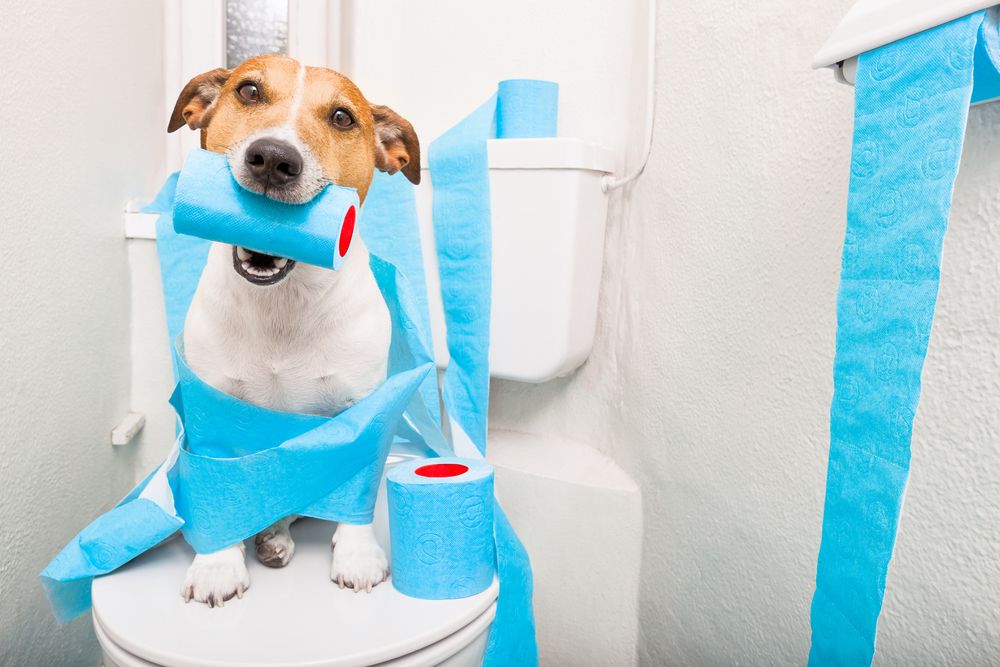Preventing Constipation in Dogs
Digestion is a natural process that affects all living creatures. While different animals may have varying digestive processes, they all share the same goal – to absorb nutrients from the food consumed and to expel waste from the body. Constipation is a naturally occurring problem within the digestive process, and one that can affect humans and animals alike – including your dog.
What is constipation?
Constipation is one of the most common digestive problems seen in dogs. The term refers to difficult or inability to regularly have a bowel movement. If bowel movements do occur, they may be infrequent, painful and the stools passed may be extremely hard. In some cases, the unpassed feces may accumulate in the large intestine or colon, packing together tightly and making it even more difficult to pass them. This is known as fecal impaction and can be extremely painful.
Left untreated, constipation can lead to a range of more serious health problems in the future.
What causes constipation?
Constipation in dogs can be caused by a wide variety of different factors. Some of these include:
- A diet that is too low in fiber
- Behavior problems – some dogs with behavior problems will hold on to their feces
- Dehydration
- Eating non-foodstuffs such as grass, dirt, hair or other items.
- Medical conditions
- Some medications
- Understanding the cause of your canine companion’s constipation is essential if you are to prevent it happening again in the future.
Symptoms of canine constipation
Aside from irregular or absent bowel movements, the other key symptoms of canine constipation include:
- Straining to pass stools for a long time
- Small, hard and round stools
- Obvious signs of pain when trying to pass a stool, such as whining or yelping
- A swollen abdomen that your dog does not like to be touched
- Dragging his rear end when moving around
- Loss of appetite
- Vomiting
- Lethargy or an ‘out of sorts’ mood
Preventing constipation
While there are many treatments for constipation, it is preferable to avoid the condition altogether. While there is no guarantee that your dog will not develop constipation at some point during his lifetime, there are some things that you can do to reduce the risk of it occurring.
Increase fiber
Fiber is essential for the digestive process, but it only occurs in some foods. Ensuring that your dog gets the right amount of fiber can be a process of trial and error – too much and your pooch may develop diarrhea, too little and he will end up constipated – but once you find the right amount it can help to keep your dog’s bowel movements regular.
Drink enough water
Water is also essential – not just for the digestive process, but for keeping your dog’s entire body functioning and healthy. Dehydration is one of the primary causes of constipation, so keep an eye on your pet’s fluid intake to keep constipation at bay.
Get regular exercise
Exercise is crucial for health and it also stimulates the body’s natural processes. By ensuring your dog gets daily exercise, you can encourage his digestive system to work more effectively and prevent constipation from occurring.
If you are concerned about canine constipation, ask and our veterinarian for advice.

